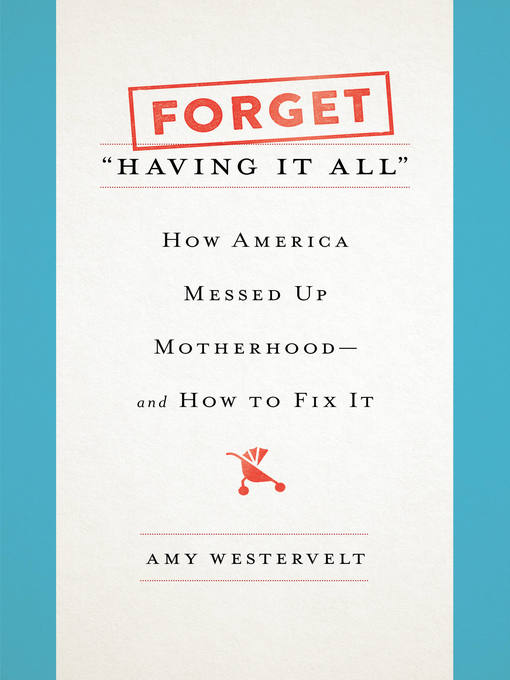
Forget "Having It All"
How America Messed Up Motherhood—and How to Fix It
- اطلاعات
- نقد و بررسی
- دیدگاه کاربران
نقد و بررسی

Starred review from September 24, 2018
Reporter Westervelt argues in this forceful call to arms that American mothers have long suffered from institutional sexism, and she proposes bold political and cultural shifts intended to put mothers on an equal footing with men. Based on conversations with hundreds of women (and some men), both parents and not, and a dive into relevant scholarship, Westervelt identified the “rotten foundation on which modern American parenting stress is built”: the idea that “children are the sole responsibility of their biological parents.” Fixing this, she maintains, requires a “rethinking of motherhood” drawing on traditions of community parenting from outside “Anglo-American” culture, a true valuing of caregiving and systems to support it, and an expansion of the definition of family beyond traditional marriage. She looks frequently to the example of Japan, which “has been slapping Scandinavian-style policies on a committedly patriarchal capitalist society” similar to the U.S.’s with mixed results; for example, merely strengthening maternity leave did not succeed in encouraging heterosexual Japanese women to have more children—their male partners’ lack of domestic involvement was a bigger barrier for them. Many of Westervelt’s ideas might be hard for traditionalists to swallow, but she writes with insight and posits inclusive solutions.

December 1, 2018
Reviewing the history of motherhood in the United States from the Puritans to now, award-winning journalist and podcaster Westervelt discusses how motherhood has changed in definition, often having a negative impact on mothers themselves. Touching not only on white motherhood, Westervelt relays how historical and current attitudes in sex education, eugenics, fertility, abortion, gender roles, corporate structures, and more also affect Latina, Native American, and African American motherhood experiences. Not only are her conclusions well documented with primary resources, she clearly lays out both cultural and policy fixes well worth debating. Although some changes may be perceived as radical, the true work will be in adjusting our ingrained cultural ideals that devalue caregiving and reinforce patriarchy. The author's solutions are practical but challenging. Westervelt doesn't abandon men; to the contrary, she stresses that we need to assist men in transitioning out of patriarchy before we can have a more equal society. VERDICT Westervelt's refreshing take on feminist literature will inspire further exploration of both classic and current works. Highly recommended for feminist collections and book clubs reading nonfiction.--Maria Bagshaw, Elgin Community Coll. Lib., IL
Copyright 2018 Library Journal, LLC Used with permission.

November 1, 2018
Journalist Westervelt takes a deep dive into motherhood in American society, starting with colonists who embraced republican motherhood, the idea that mothers were responsible for the moral growth of the nation. She also provides the matriarchal counterpoint often found in Native American societies and the ways a developing America dismantled it. Throughout the book, as she considers the post-WWII work force, the backlash to the 1970s women's movement (Phyllis Schlafly fans should stay away from this one), and today's tech-focused corporations, she acknowledges the different experiences of women of color, a crucial nod to intersectional feminism. The last chapters touch on the larger implications of medical advances in fertility and address the ways the patriarchy fails fathers, too. Each chapter ends with two suggestions: a cultural fix, such as attaching a greater economic value to caregiving, and a policy shift, like subsidized day care. Readers can cling to these ideas to prevent complete hopelessness, and they should, as this is a worthwhile addition to accessible feminist literature.(Reprinted with permission of Booklist, copyright 2018, American Library Association.)




دیدگاه کاربران